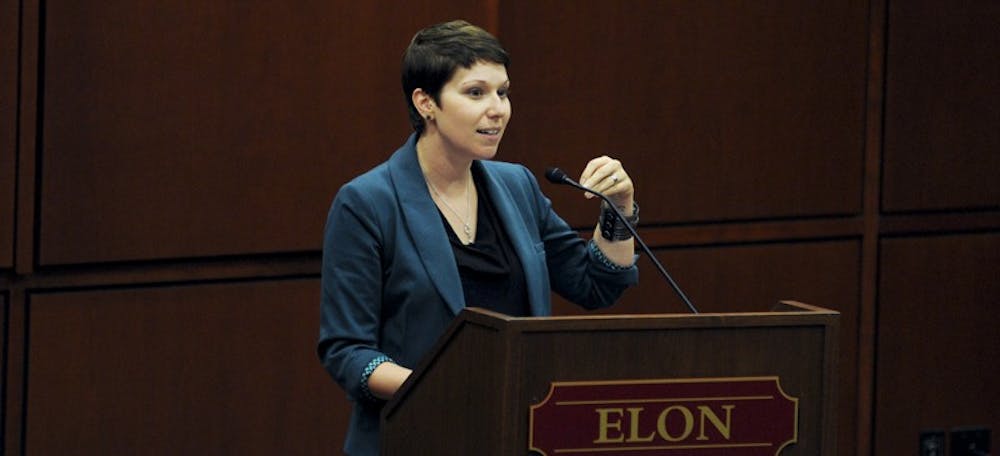Four panelists discussed how religious affiliation is a component of the upcoming presidential election at Elon University. The panelists discussed how religious beliefs of the public can determine a country’s leaders, and they collectively agreed some voters will analyze the religiosity of Gov. Mitt Romney and President Barack Obama.
Jeffrey Pugh, professor of religious studies, used the power struggles and economic collapse of Munster, Germany in 1533 as an example of religion determining politics. Pugh said a key component was the apocalypse, which was prevalent in the religious art and text of the era.
“They read scripture like it was a present narrative that they were imbedded in,” he said.
He went on describe when a politician ran out into the city market and announced to the city the Second Coming. According to Pugh, this was a spark that inflamed political turmoil in the region. The man in question was elevated to a high position, and he ousted other religious groups from the city. Pugh showed a photograph of old cages containing the bones of political prisoners hung from one of the Munster cathedrals. He said he was both troubled and fascinated with the fact the modern inhabitants of the city did not remove the cages.
“Maybe in Europe this is a reminder of what happens when we argue over which imaginary friend is better,” Pugh said, referring to his earlier point that religion defines political outcomes.
Kelly Baker, lecturer in religious studies, discussed Tim Lahaye, an Evangelical minister and author best known for “Left Behind,” a series of apocalyptic fiction books. According to Baker, Lahaye believes Obama is leading the country into the apocalyptic scenario prophesized in the Christian faith.
“What is at stake if every political event can be taken as a sign of the end?” she asked.
Tom Mould, professor of sociology and author of a book about Mormon folk traditions, focused on Romney’s faith. Although several religious groups endorse Romney’s campaign, he is not formally endorsed by members of his own religion, he said. He also noted Romney’s infrequent mention of his religion in his campaign.
“I would suggest that the frame (of voter perception) is very different for Mitt Romney,” Mould said.
Jason Bivins, professor of religion and American culture at North Carolina State University, concluded the panel with what he called “a broad and cynical perspective on religion’s presence and correlation with politics.”
He expressed frustration with online debates and comments regarding religion and politics.
Freshman Harrison Atkinson said he, too, felt Bivins’ frustration.
“I have been in online debates a couple of times,” he said. “I feel there aren’t a lot of rational thoughts but you really feel you need to defend your viewpoints.”
Bivins said everyone has their own hypothesis about the influence of religion on politics and that every perspective is considered crazy—unless we agree with it.


